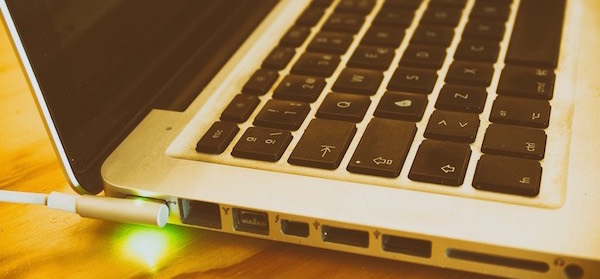Are you often frustrated at how quickly your laptop battery runs out of juice? Laptop batteries work on the same principle as your phone, tablets and pretty much every other battery in the world. That is, when the battery is in use, it will run down – it’s inevitable really. Here are five tips that will help to extend the life of your laptop battery.
1. Turn off unnecessary functions
The first step in extending your battery life is to turn off all the functions you don’t need at the time. If you’re not using the internet or any wireless accessories, then turning off wifi and Bluetooth will give you longer battery life. If you do need wifi and Bluetooth on, then try blocking online apps such as Dropbox, AirDrop, OneDrive and iCloud. It also pays to turn off any apps that may update in the background, such as back-up software and location services.
2. Do one thing at a time
Having multiple apps open at any one time will drain your battery power faster than having only one open. So, if you’re running out of juice, using one app at a time will help you get more out of your battery. If you’re really running low, then using text-editing software, such as Apple Notes or Windows TextPad, will sponge less power from your battery.
3. Check your energy-saving settings
Your Mac laptop comes with a fantastic function for efficient use of power called ‘Energy Saver’. You’ll find a similar feature on your PC called ‘Power Options’. Both have automatic settings that can help to extend your laptop’s battery life, and also allow you to manually input settings, such as when to put your computer to sleep if you’re not using it, and other options to improve battery efficiency. You can also dim your screen and backlit keyboard, and mute your speakers to save battery power. Sometimes, turning down your screen resolution can also help maintain battery charge for longer.
4. Use apps to analyse battery health
You can check your battery health in your laptop’s control panel, but you may also wish to use a third-party battery monitoring app such as BatteryInfoView for PCs and iStat for Macs to get a more detailed look at how you battery (and other parts of your laptop) are performing.
5. Keep cool
Laptops tend to become hot when in use, and when they get hot, the cooling fans kick in which, you guessed it, uses more battery power. Try to keep your laptop cool by following Ryan’s tips to stop your laptop overheating.
6. Disable unused devices and ports
External devices such as a mouse, wifi, speakers and Bluetooth can drain your battery. When these are not in use, turn them off.
The USB ports these devices use have power running to them that can be disabled through your laptop’s control panel.
7. Turn down your monitor brightness
A bright monitor will lap up your battery. Reduce screen brightness as much as possible without straining your eyes.
8. Don’t use screen savers
You may have been told you need to use a screen saver to preserve your monitor, and while it can stop screen burn-in, a screen saver is also a huge drain on your battery.
Replacing your high-definition screen saver with the simple black screen option will protect your screen without draining your power.
9. Turn it off
It probably goes without saying that your computer uses less power while it’s not switched on. So, if you don’t plan on using it for a while, why not turn it off? Sometimes things are just that simple.
If you enjoy our content, don’t keep it to yourself. Share our free eNews with your friends and encourage them to sign up.

